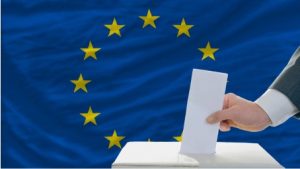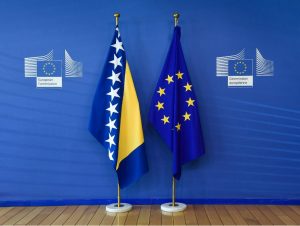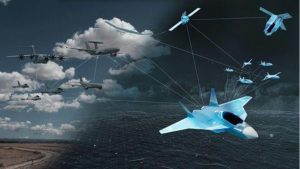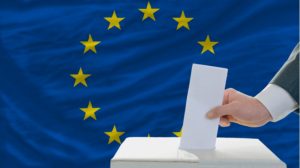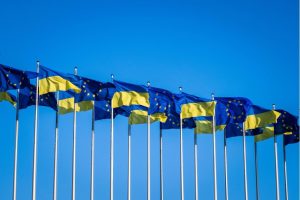In an unexpected appearance, members of the Weimar Triangle consisting of France, Poland and Germany doubled-down efforts to boost military resources in light of the war in Ukraine. At the same time in Brussels, the European Commission allocated over 500 million euros to increase manufacturing of artillery shells for the bloc, estimating to produce 2 million shells a year by 2025.
While one cannot pass by the French President’s rhetoric, why has the EU’s three largest powers including a nuclear power decide to increase the output of the European defense industry? First of all, the predictable outcome of the current Russian presidential elections and the unpredictable outcome of the upcoming elections in the United States has nudged the three countries to increase their capability and responsibility of defending NATO and the EU’s interests in an increasingly unpredictable and dangerous international environment. Second, the EU including the eurozone is not growing robustly, meaning it has lost competitiveness when it comes to the energy and automobile industry and is lagging behind in other strategic economic areas.
Putting together the increasing need for defense and low economic output, it is evident that the Weimar three are looking for the European defense industry to bring the EU out of economic stagnation. Looking at the latest political rhetoric of the French President where he did not rule out sending ground troops to Ukraine caused -however did not specify what troops and within what mandate- in an effort to rewrite Russia’s narrative where the rest of Europe is seen as weak, incapable of coordinating joint solutions and not showing enough power. This fits into the context, where different efforts to show and project indirect political and military power compete, to scare off Russia. The question in the end is, who is bluffing and who has the upper hand, not to mention in between the Russian and U.S. elections Europe will hold its elections of its own, reshuffling the political landscape and political priorities for the next five years, which will in a great matter define the future of Europe. As the French President said, Europe must not show weakness if it wants to achieve peace in Ukraine and ruled out an outright confrontation with Russia, which means that it is willing to show force, not use it. This makes strategic sense, where -if done right- power projection can lead to gaining political respect, which Macron might seem as attainable with Russia, since the latter speaks in the language of power (political, military, economic).
The question is, how will Central-Eastern European countries perceive great-power contestation, which can lead to a greater shift in the region’s security dynamics and may prompt other countries to reassess their own security policies and level of support they are willing to give to Ukraine. Additionally, it could influence the strategic calculations of NATO and the EU regarding their future actions and commitments in the region. Nevertheless, there is also the risk of escalating a conflict with Russia which would be far-reaching regarding the political and economic stability of Central Europe and beyond.
Photo source: Wikipedia
